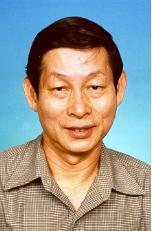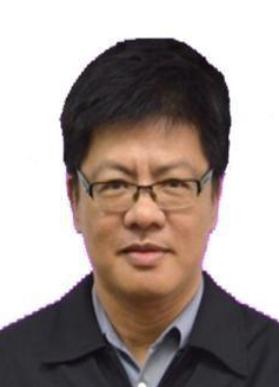Speakers of CMLDS 2026

Prof. LING Tok Wang
National University of Singapore, Singapore
Biography:
He is an ER Fellow, an ACM Distinguished Scientist, IEEE Senior Life Member, and Senior Member of Singapore Computer Society. He received the ACM Recognition of Service Award in 2007, the DASFAA Outstanding Contributions Award in 2010, and the Peter P. Chen Award in 2011.

Prof. XiaoLi Li
IEEE Fellow, AAIA Fellow
Nanyang Technological University, Singapore
Biography: Dr. Li Xiaoli is the Department Head and Principal Scientist of the Machine Intellection (MI) department at the Institute for Infocomm Research (I2R), A*STAR, Singapore. He also holds adjunct full professor position at School of Computer Science and Engineering, Nanyang Technological University. He has been a member of ITSC (Information Technology Standards Committee) from ESG Singapore and IMDA since 2020 and has served as joint lab directors with a few major industry partners. He holds the title of IEEE Fellow and is also recognised as a Fellow of the Asia-Pacific Artificial Intelligence Association (AAIA).
Dr. Li also served as a health innovation expert panel member for the Ministry of Health (MOH), as well as an AI advisor for the Smart Nation and Digital Government Office (SNDGO), Prime Minister’s Office, highlighting his extensive involvement in key Government and industry initiatives.
His research interests include AI, data mining, machine learning, and bioinformatics. He has been serving as the Chair of many leading AI/data mining/machine learning related conferences & workshops (including KDD, ICDM, SDM, PKDD/ECML, ACML, PAKDD, WWW, IJCAI, AAAI, ACL, and CIKM). He currently serves as editor-in-chief of Annual Review of Artificial Intelligence, and associate editor of Knowledge and Information Systems, and Machine Learning with Applications (Elsevier).

Prof. Teh Ying Wah
University of Malaya, Malaysia
Biography:
As a highly accomplished computer scientist and data mining expert with over 35 years of experience, I have demonstrated exceptional leadership, expertise, and vision in the field. Over the course of my career, I have achieved numerous successes and made significant contributions to the industry. I began as an entry-level computer programmer in 1988 and advanced to become a Professor of Data Mining at the Faculty of Computer Science and Information Technology at the University of Malaya. I obtained my tertiary academic qualifications from Oklahoma City University and the University of Malaya, and I have published more than 90 academic papers in top-tier journals, including Information Fusion and the International Journal of Information Management.
I have a remarkable H-index and number of citations in Web of Science, Scopus, and Google Scholars databases, and I have supervised numerous students at all levels of study. My areas of research include data warehouse, data mining, deep learning, IoT, activity recognition, wearable sensors, accelerometers, heart arrhythmia, electrocardiograph, supraventricular premature beat, multivariate time series, edge computing, task scheduling, data streams, mobile computing, speaker verification, language recognition, clustering algorithms, MapReduce, stock market, and sentiment analysis.

Prof. Jixin Ma
University of Greenwich, UK
Biography: Dr Jixin Ma is a Full Professor of Computer Science (Artificial Intelligence) and the Director of PhD/Postgraduate Research Programme in the School of Computing and Mathematical Sciences at University of Greenwich, U.K. He has been the Director of the Centre for Computer and Computational Science and the Lead of Artificial Intelligence Research Group. Professor Ma is also a Visiting Professor of Beijing Normal University, Hainan University, Anhui University, Zhengzhou Light Industrial University and Macau City University. Professor Ma obtained his BSc and MSc of Mathematics in 1982 and 1988, respectively, and PhD of Computer Sciences in 1994. His main research areas include Artificial Intelligence, Data Science, and Information Systems, with special interests in Temporal Logic, Information Security, Machine Learning, Case-Based Reasoning and Pattern Recognition. Professor Ma has been a member British Computer Society, American Association of Artificial Intelligence, ACIS/IEEE, World Scientific and Engineering Society, and Special Group of Artificial Intelligence of BCS. He has also been the Editor of several international journals and international conference proceedings, Conference/Program Chair, and Invited Keynote Speakers of many international conferences. Professor Ma has published more than 200 research papers in peer-reviewed international journals and conferences.
